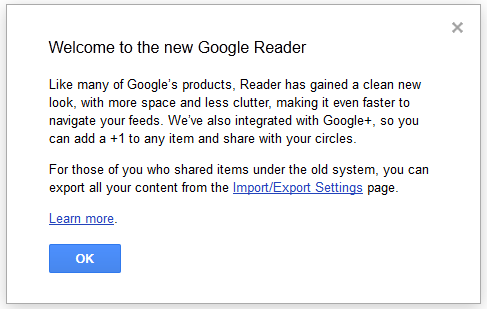Sometimes it’s hard to admit that a longstanding relationship with a friend has withered to the point that it’s really just a memory. We cling to those memories of better time even though we don’t see one another day to day.  And when we do, it’s just not the same.
And when we do, it’s just not the same.
That’s the way it is with Technorati and me.
There was a time when I would visit Technorati several times a day. I would regularly refer to Technorati to learn about a new blog I’d discovered. What author had registered ownership of the blog? How many inbound links came to it and from whom?
A blog’s Technorati Authority would provide a quick indicator of whether a blog was being paid attention to and by whom.
The Technorati search engine provided me with a unique view of content. Not only could I find the most recent posts on any topic, but I could also filter them by the Technorati Authority – selecting posts from all blogs, those with a little authority, some authority or a lot of authority.
And Technorati first introduced me to the concept of persistent search. It was the first search engine I found that enabled me to define a search and then subscribe to the results in my feedreader – telling me right away about new content that satisfied my search criteria without having to regenerate the search terms.
I registered ProPR on Technorati and followed the increase of my own authority (Yes, I visited daily just to watch the number increase.) I even registered my Twitter stream with Technorati and was delighted to see its authority climb as others linked back to my Twitter ID.
I could even rely on Technorati’s then-CEO, David Sifry, to post a quarterly analysis of the state of the blogosphere/ live web.
So, Technorati meant a lot to me. It was a search engine, a reference point to assess the relative weight of blogs and a source of analysis and insight into the growth of social media.
But….
A relationship is only strong so long as both parties are committed to it. And over time, I began to feel abandoned by Technorati. Management changes, money problems, a loss of focus, failed partnerships, service outages – all took their toll. I began to rely less and less on Technorati.
 And just when my faith in Technorati was being challenged, Google enticed with its own social media search engine. I began to hang out more often with my new Google friend.
And just when my faith in Technorati was being challenged, Google enticed with its own social media search engine. I began to hang out more often with my new Google friend.
As I divided my loyalties, I noticed that the results from Google Blog Search was finding posts and content that Technorati was missing.
But my emotional attachment with my old friend Technorati kept me coming back. I’d continue to routinely set up persistent searches on both Google Blog Search and Technorati.
On top of this, Technorati was failing to maintain its innovation leadership. Technorati authority was the bluntest of instruments. But it had its own authority, being widely cited and incorporate in indexes like the AdAge Power150. But despite the fact that its many users criticized the basic methodology, Technorati failed to improve. It left the field wide open to startup AideRSS to make the big advance with its PostRank algorithm.
And so it ends…
Finally, I am throwing in the towel on Technorati. I no longer receive benefits that justify the time to go to the site and conduct a search. Google blog search reliably provides me with more complete results. So, why spend the time setting up and reviewing search results from a second service that has proven itself so unreliable?
And as I have come to doubt the completeness of Technorati’s search results, I’ve grown ever more reluctant to place any reliance on Technorati Authority.
So, at the end of the day, I find myself rarely going to Technorati.
The only time I use it now is when I am doing social media monitoring for a client. Why? Because as superior as it is, Google isn’t perfect. And Technorati is still better than the field of also-rans (Ice Rocket anyone?). And when I’m doing work for a client, i need a “second dip” to be sure that I haven’t missed anything. So, for now, I turn to Technorati as backup. A far humbler fate for Technorati than I had once expected for it.
How about you?
Are there social media tools and apps for which you once had high hopes that you now find yourself using and visiting less often? Tell us about it.
To get the ball rolling, I’m asked Dave Fleet, Bob LeDrew, Mitch Joel, Colin McKay and Shel Israel to tell us about a social media tools with which they once had a warm and deep relationship with that has now lapsed.
Credit where credit’s due
This post was inspired by Shel Holtz and Neville Hobson‘s discussion of Technorati’s unreliability on the FIR podcast 373.
 You and I probably share something in common. We probably use more than one social network. And if we do, we’re probably always considering what we get out of each network and wondering whether the time we invest in each is worthwhile.
You and I probably share something in common. We probably use more than one social network. And if we do, we’re probably always considering what we get out of each network and wondering whether the time we invest in each is worthwhile.






